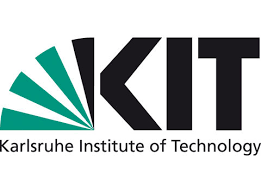New Study Explores Long-Lasting Effects of the Pandemic on the Health of Adolescents
Less active physical activity, more time in front of the screen, higher psychological stress and poorer physical fitness: various studies showed these alarming results for children and young people during the Covid-19 pandemic. A group led by the Karlsruhe Institute of Technology (KIT) is now investigating whether these negative effects will continue in the new COMO study. The aim is to holistically examine the physical and mental health of children and young people in Germany. Also new is the completely digital data collection. The Federal Ministry of Education and Research is funding the project with around 1.8 million euros.
The study is a joint project of KIT, the University Hospital Hamburg-Eppendorf, the Karlsruhe University of Education, the University of Konstanz and the University of Bochum. “Even before the Covid-19 pandemic, many children and young people exercised less than recommended by the World Health Organization. During the second lockdown and subsequently, activity fell even further and the use of screen media in leisure time increased,” says Professor Alexander Woll from the Institute for Sport and Sports Science (IfSS) at KIT, who leads the COMO study. “We assume that the pandemic is not over in this respect, but will continue to have consequences in society,” explains Dr. Claudia Niessner, junior research group leader at the IfSS, who initiated and leads the research network together with Woll. The aim of the COMO study is therefore to understand the long-term effects of the pandemic on children and young people and to derive suitable measures that support their health and development. The first results are expected in early summer 2024.
The researchers are building on, among other things, the results of the Motor Skills Module Study (MoMo), a joint project between KIT and the Karlsruhe University of Education that has been running since 2003. The MoMo study was the only German representative longitudinal study to analyze the consequences of the Covid-19 pandemic on physical sporting activity and motor performance. The COMO team is also building on the findings of the COPSY study at the University Hospital Hamburg-Eppendorf (UKE). “We see that the quality of life and mental health of children and adolescents have deteriorated significantly compared to the period before the pandemic,” says Professor Ulrike Ravens-Sieberer, head of the COPSY study and research director of the Clinic for Child and Adolescent Psychiatry, -psychotherapy and psychosomatics at the UKE. The acronym “COMO” is made up of the acronyms of the two previous studies “COPSY” and “MoMo”.
Surveys and tests in the digital space for the first time – a real-time database for political decisions
The COMO study will not only provide current health-relevant data, but will also advance digitalization in child health research: both surveys and motor tests will take place entirely in digital space for the first time. In this way, data can be made available promptly for political decisions. Data collection in the COMO study is carried out through online surveys of children and young people aged 4 to 17 and their parents. There are also special digital fitness tests led by V. Professor Anke Hanssen-Doose from the Karlsruhe University of Education, which are carried out via video meeting. The data collected in COMO will then be compared with the results of the COPSY and MoMo studies to provide a comprehensive picture. At KIT, research is also integrated into the KIT Center for Health Technologies (KIT HealthTech), in which scientists from many disciplines work on future-oriented technologies for the healthcare system.
COMO combines sports science, psychosocial medicine and empirical social research
In order to obtain a holistic picture of the physical and mental health of children and young people in Germany, the partners bring their respective research focus into the joint project: The KIT (Prof. Alexander Woll, Dr. Claudia Niessner) focuses on physical-sports activity and physical Health, the UKE (Prof. Ulrike Ravens-Sieberer) mental health and the Karlsruhe University of Education (V.-Prof. Anke Hanssen-Dose) physical fitness and body constitution. The University of Konstanz (Prof. Thomas Hinz) researches environmental influences and social inequalities and the Ruhr University of Bochum (Prof. Markus Reichert) analyzes how thoughts and feelings influence behavior in everyday life.
BMBF funding for research into the social effects of the corona pandemic
The COMO study was selected in a highly competitive competition as one of only 18 projects from almost 500 applications in the “Social Impact of the Corona Pandemic – Research for Integration, Participation and Renewal” funding line of the Federal Ministry of Education and Research (BMBF). The BMBF is funding the innovative project with a total of around two million euros over a period of three years.

